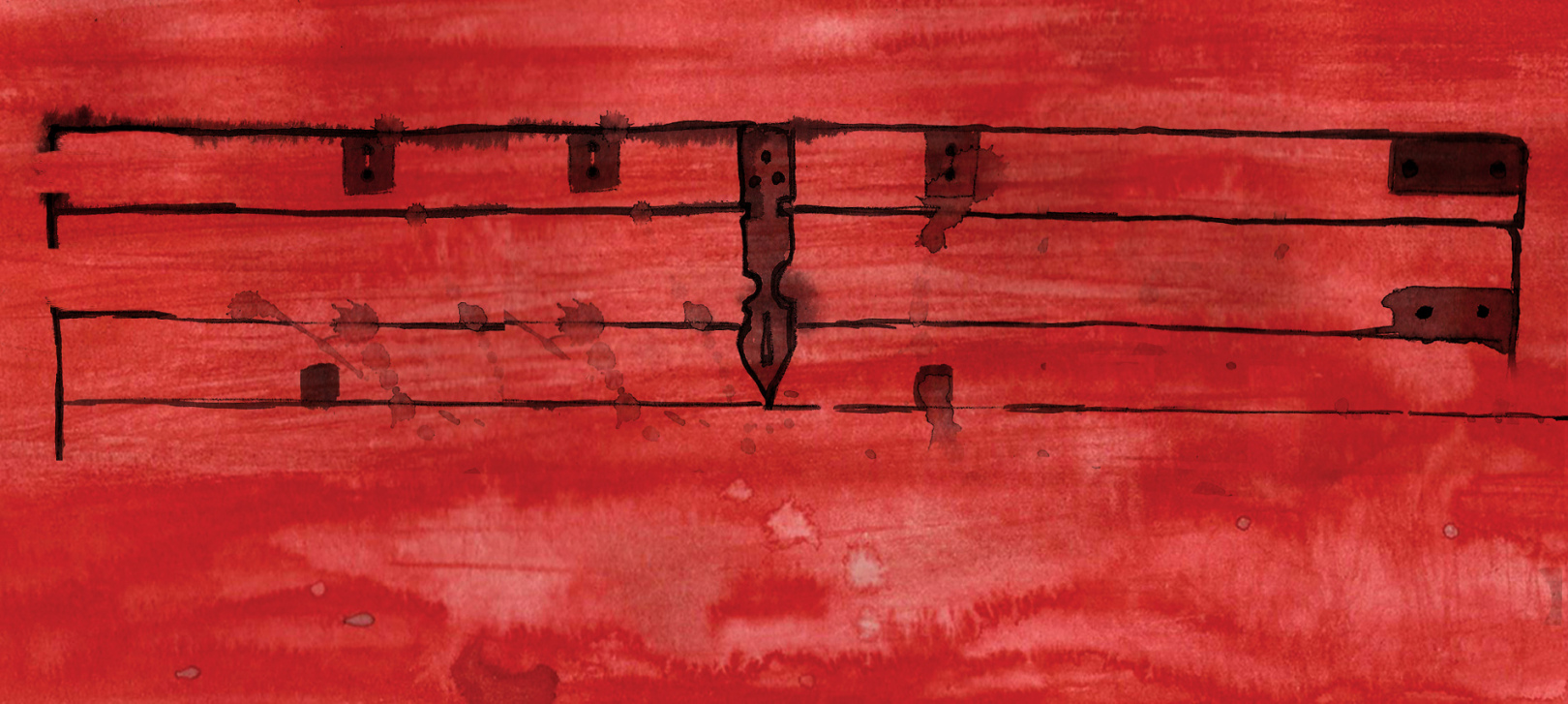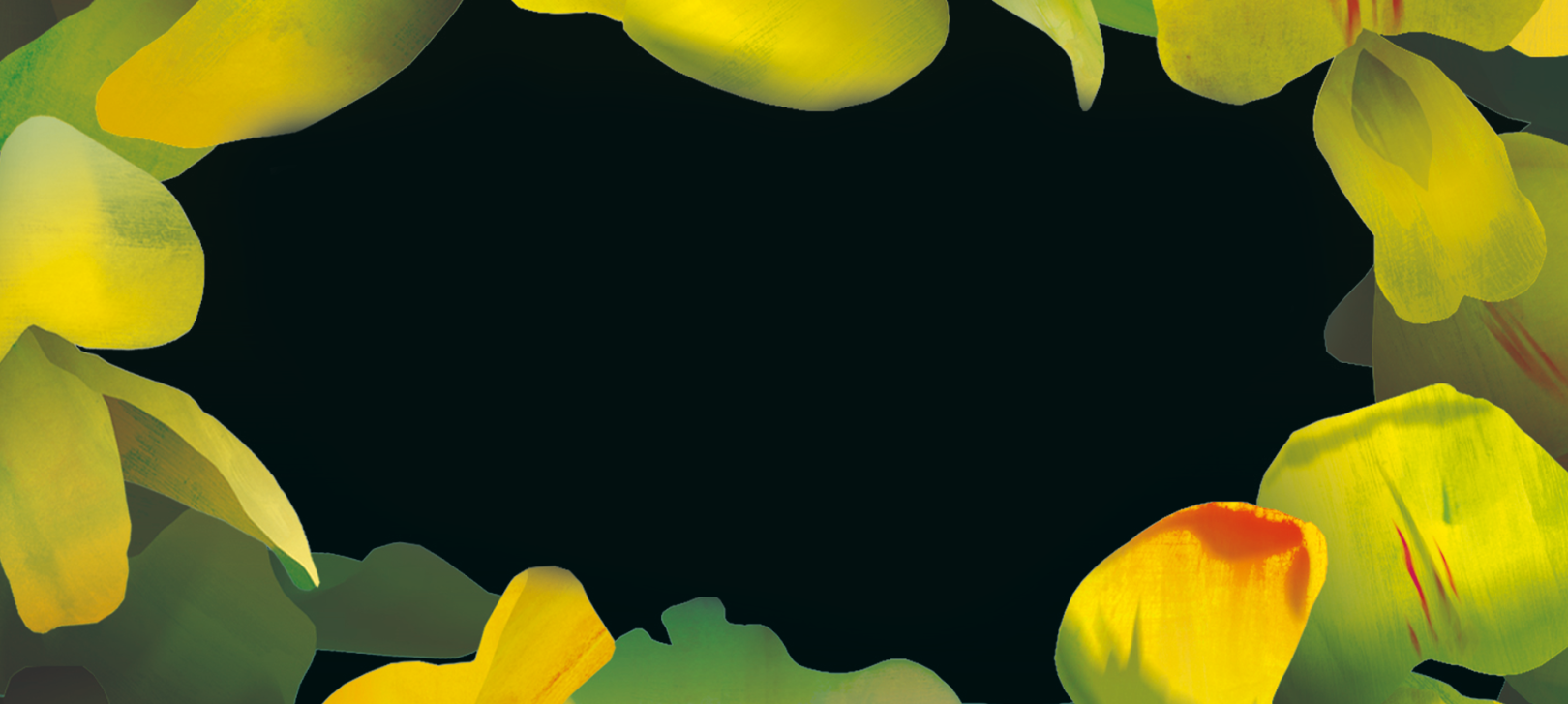The pain of partition accompanied the joy of freedom for India. Even after seventy years, the horrors of violence still haunt the two countries.
The Remembering Partition Box Set is a collection of five iconic books which look at the different faces of partition, from the larger political and historical view to the very personal tales of hatred, grief, courage and friendship.
Here are the five books that commemorates one of the most defining moments of our history.
Train to Pakistan by Khushwant Singh
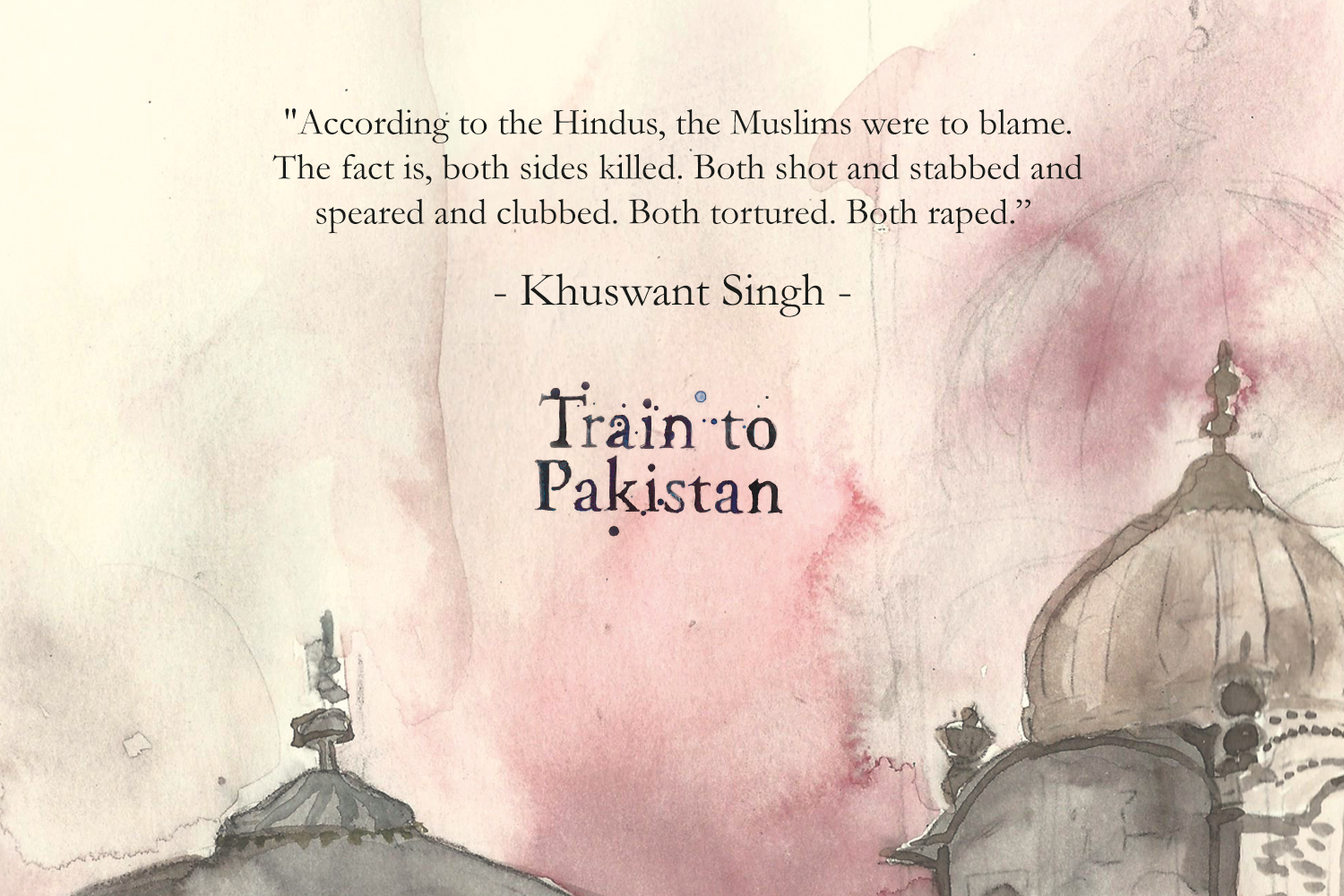
Ice-Candy-Man by Bapsi Sidhwa
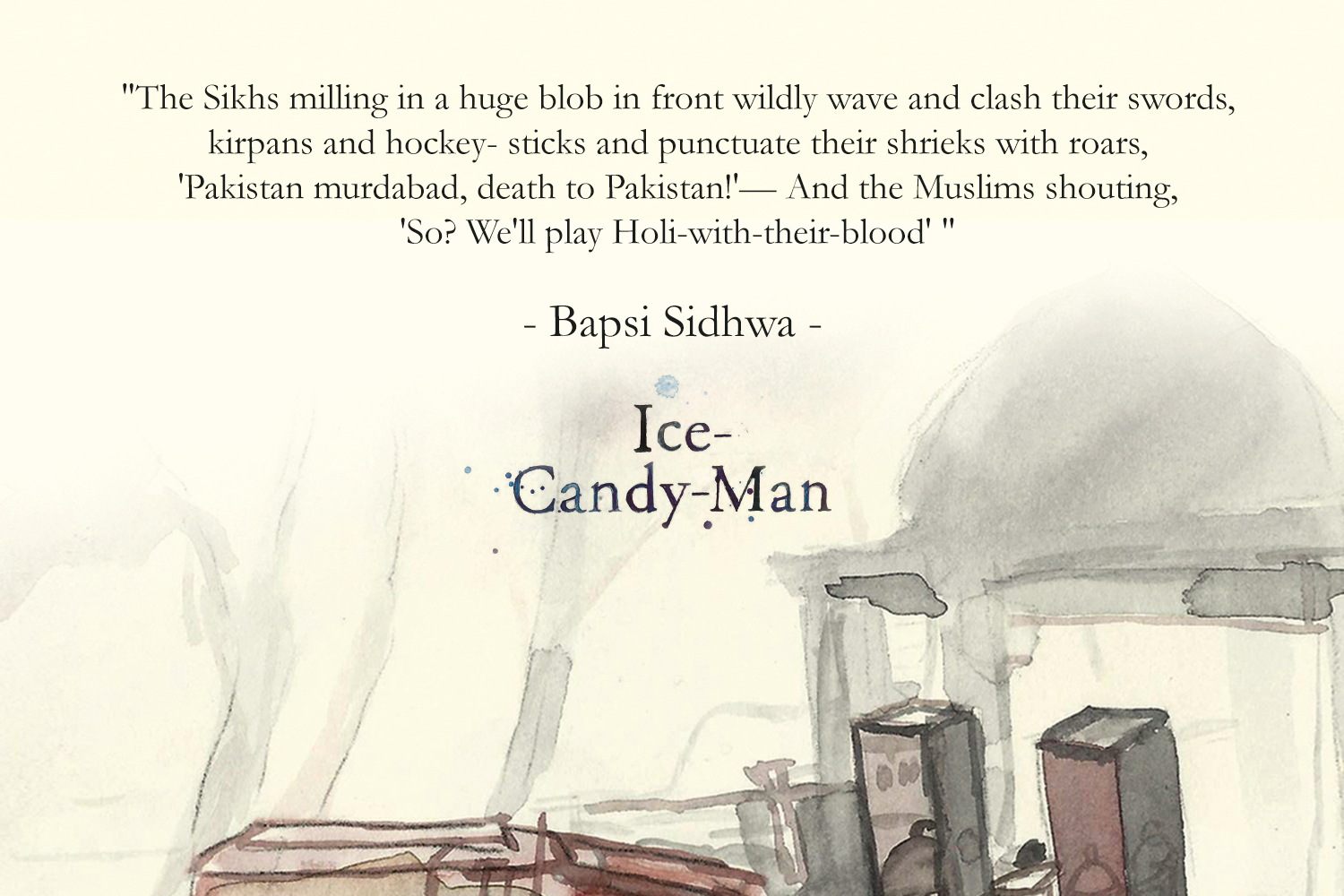
This Is Not That Dawn by Yashpal
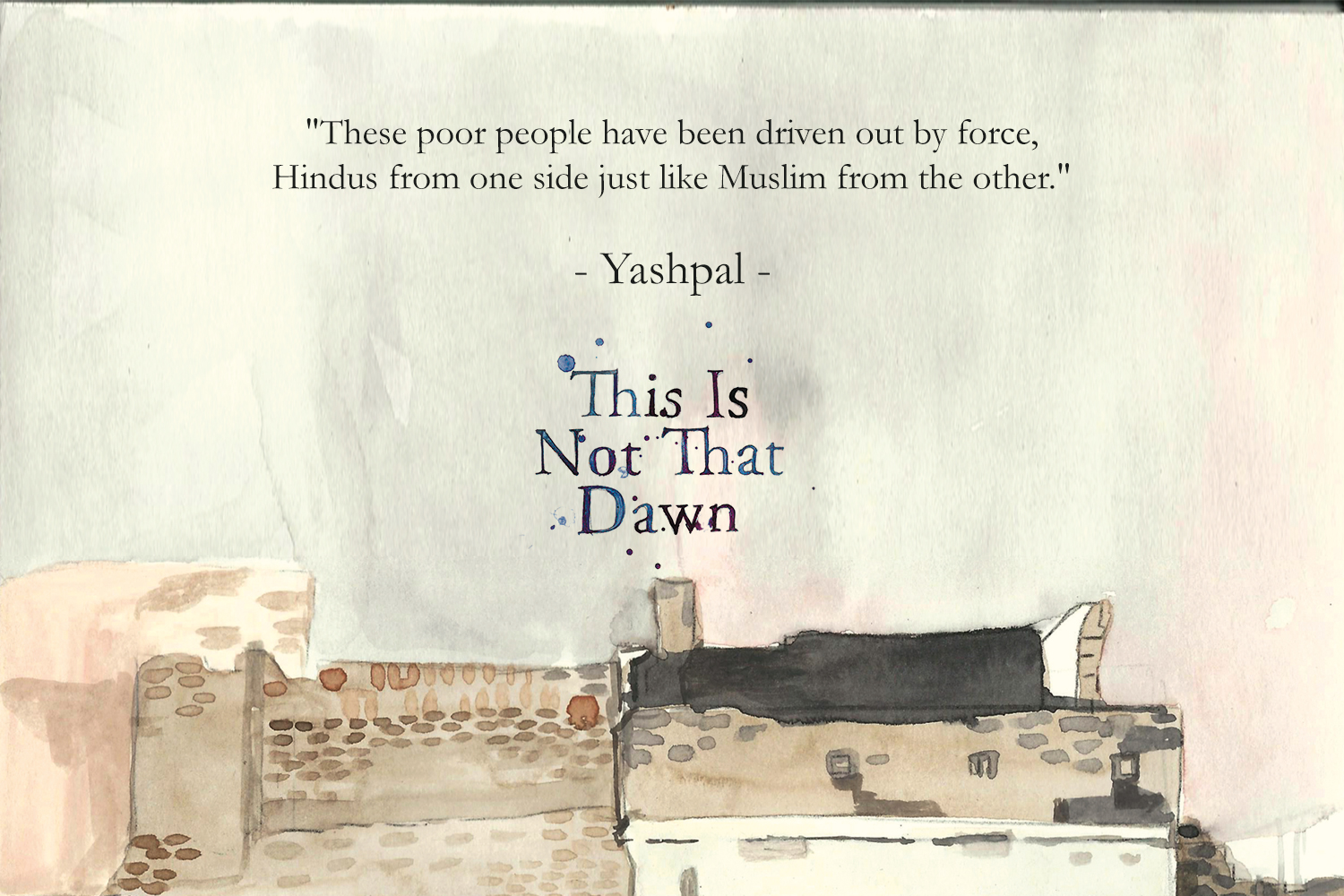
The Great Partition by Yasmin Khan
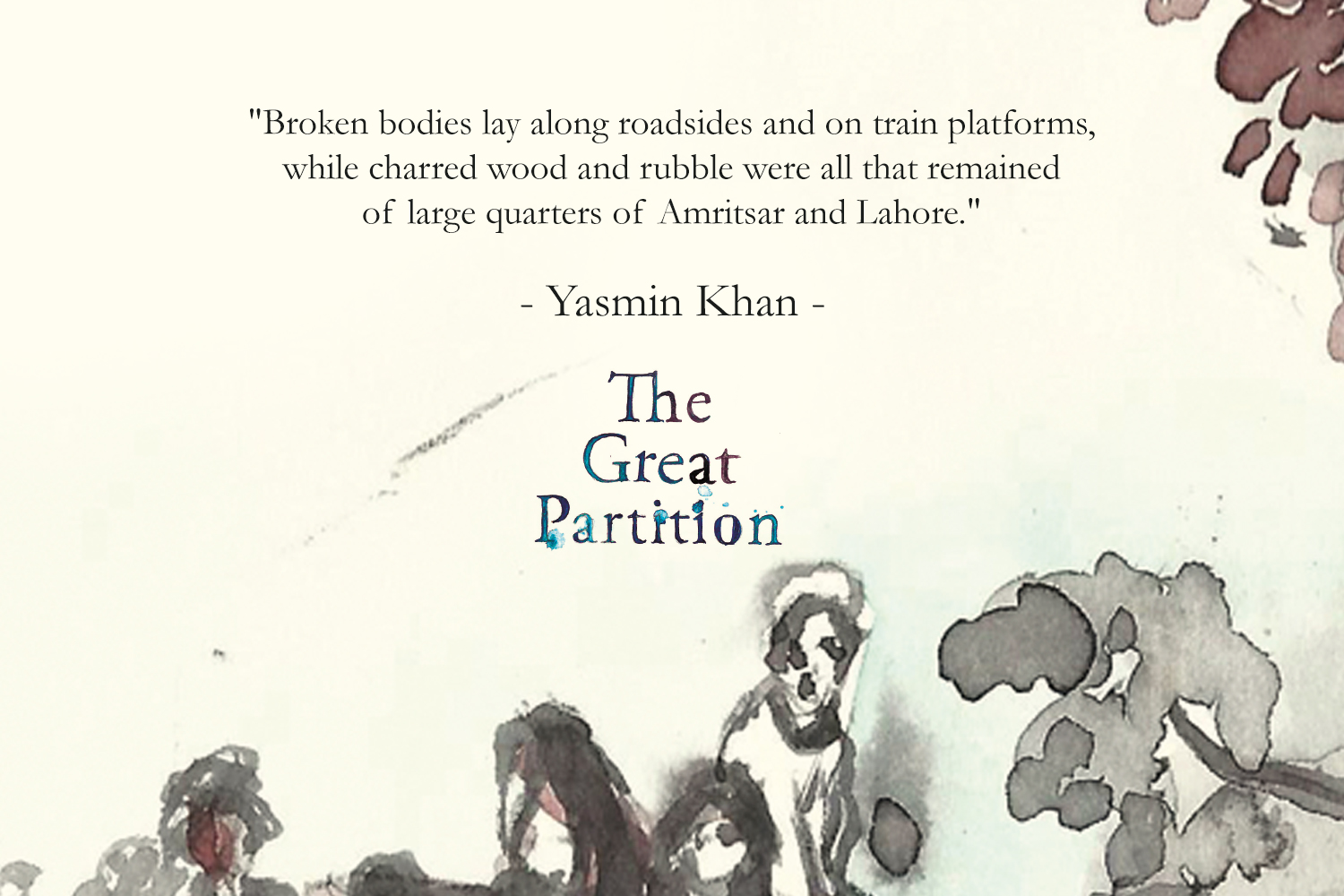
In Freedom’s Shade by Anis Kidwai
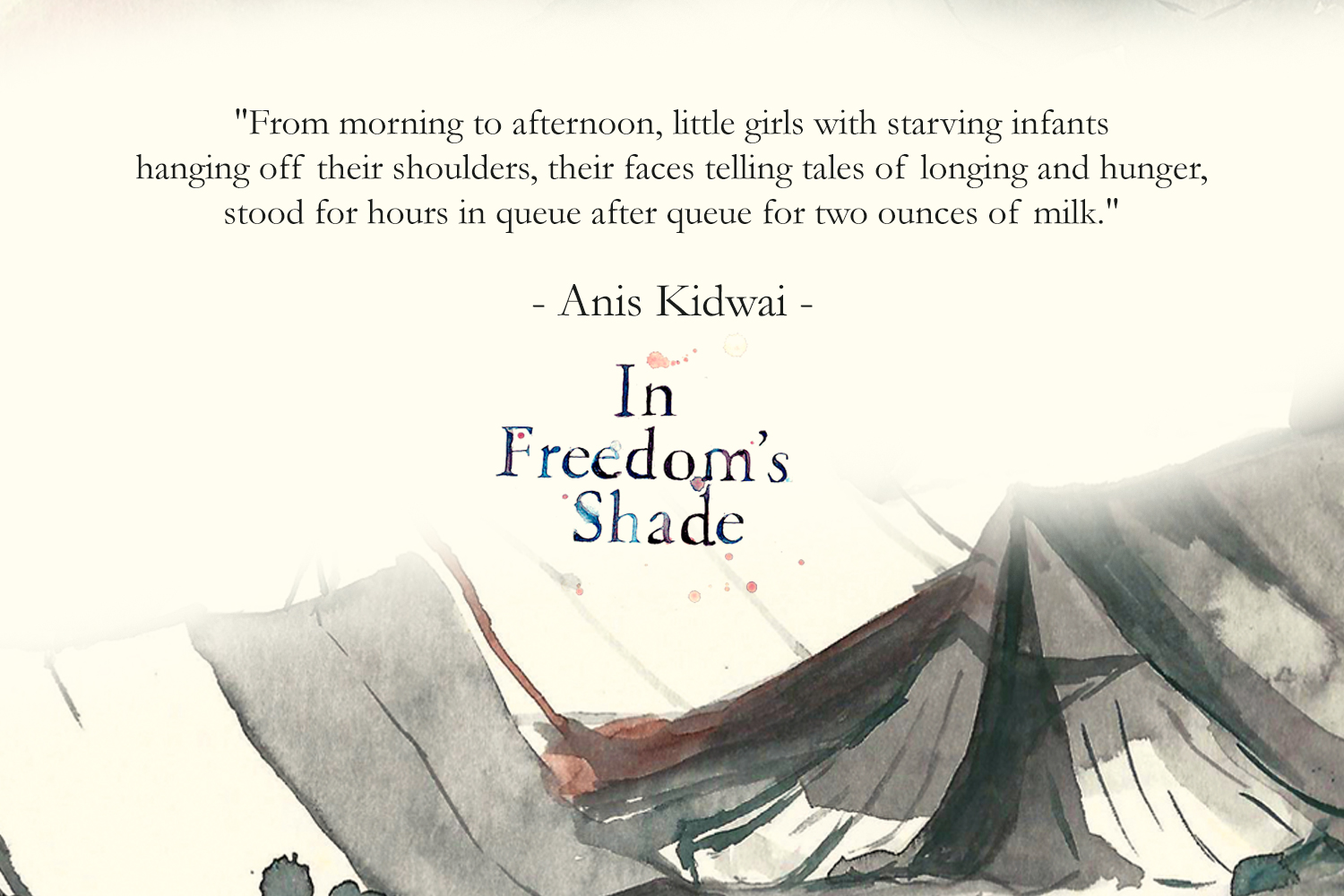
Pick up this collection and re-visit the heart-rending event.
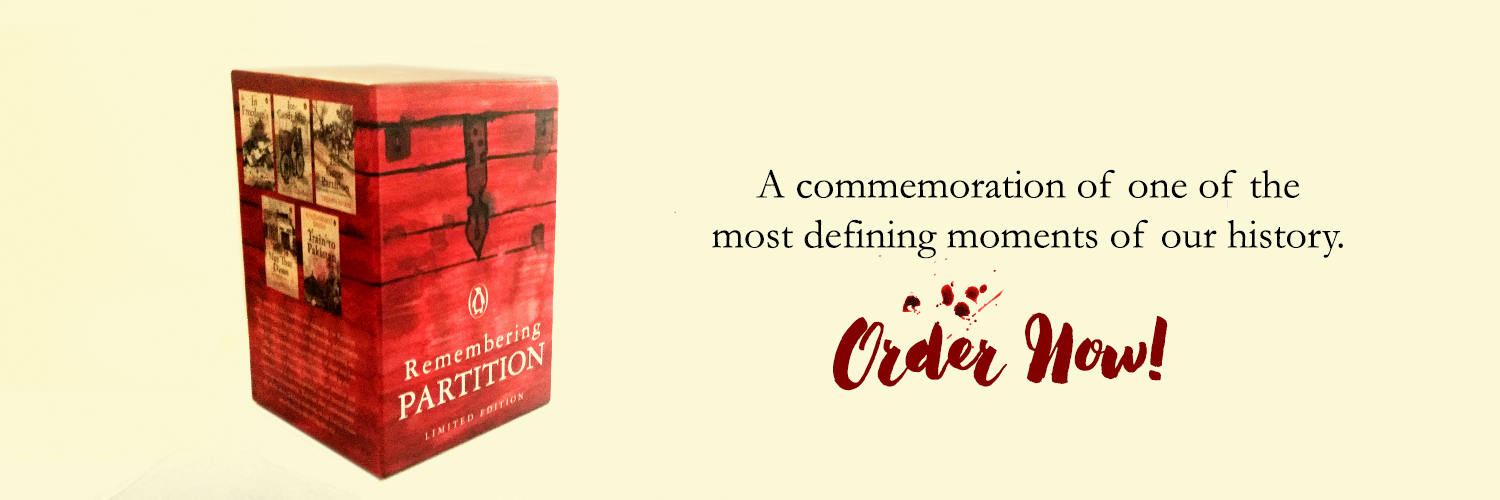
Tag: Indian literature
Subh-e-Azadi, An Anguished Evocation of the Pain of Partition
Faiz Ahmed Faiz is widely regarded as the greatest Urdu poet of the twentieth century and the iconic voice of a generation. He is best remembered for his revolutionary verses that decried tyranny and called for justice. In his poem, Subh-e-Azadi, he expressed the anguish and disappointment of Partition and the cost that the Indian subcontinent paid for freedom from the British rule.
Subh‐e Azadi
Yeh daagh daagh ujaalaa, yeh shab gazidaa seher
Woh intezaar tha jiska, yeh woh seher to nahin
Yeh woh seher to nahin, jis ki aarzoo lekar
Chale the yaar ki mil jaayegi kahin na kahin
Falak ke dasht mein taaron ki aakhri manzil
Kahin to hogaa shab-e-sust mauj ka saahil
Kahin to jaa ke rukegaa safinaa-e-gham-e-dil
Jawaan lahu ki pur-asraar shahraahon se
Chale jo yaar to daaman pe kitne haath pade
Dayaar-e-husn ki besabr kwaabgaahon se
Pukaarti rahi baahein, badan bulaate rahe
Bahut aziz thi lekin rukh-e-seher ki lagan
Bahut qareen tha haseenaa-e-noor ka daaman
Subuk subuk thi tamanna, dabi dabi thi thakan
Suna hai, ho bhi chukaa hai firaaq-e-zulmat-o-noor
Suna hai, ho bhi chukaa hai wisaal-e-manzil-o-gaam
Badal chukaa hai bahut ehl-e-dard ka dastoor
Nishaat-e-wasl halaal, o azaab-e-hijr haraam
Jigar ki aag, nazar ki umang, dil ki jalan
Kisi pe chaaraa-e-hijraan ka kuch asar hi nahin
Kahaan se aayi nigaar-e-sabaa, kidhar ko gayi
Abhi charaag-e-sar-e-raah ko kuch khabar hi nahin
Abhi garaani-e-shab mein kami nahin aayi
Najaat-e-deedaa-o-dil ki ghadi nahin aayi
Chale chalo ki woh manzil abhi nahin aayi
—Faiz Ahmed Faiz
The Dawn of Freedom, August 1947
This light, smeared and spotted, this night‐bitten dawn
This isn’t surely the dawn we waited for so eagerly
This isn’t surely the dawn with whose desire cradled in our hearts
We had set out, friends all, hoping
We should somewhere find the final destination
Of the stars in the forests of heaven
The slow‐rolling night must have a shore somewhere
The boat of the afflicted heart’s grieving will drop anchor somewhere
When, from the mysterious paths of youth’s hot blood
The young fellows moved out
Numerous were the hands that rose to clutch
the hems of their garments,
Open arms called, bodies entreated
From the impatient bedchambers of beauty—
But the yearning for the dawn’s face was too dear
The hem of the radiant beauty’s garment was very close
The load of desire wasn’t too heavy
Exhaustion lay somewhere on the margin
It’s said the darkness has been cleft from light already
It’s said the journeying feet have found union
with the destination
The protocols of those who held the pain in their
hearts have changed now
Joy of union—yes; agony of separation—forbidden!
The burning of the liver, the eyes’ eagerness, the heart’s grief
Remain unaffected by this cure for disunion’s pain;
From where did the beloved, the morning breeze come?
Where did it go?
The street‐lamp at the edge of the road has no notion yet
The weight of the night hasn’t lifted yet
The moment for the emancipation of the eyes
and the heart hasn’t come yet
Let’s go on, we haven’t reached the destination yet
—Translated by Baran Farooqui

In Conversation with Krishna Baldev Vaid
We recently spoke to the author of None Other, the august 89-year old Krishna Baldev Vaid. He is well known for his books The Broken Mirror, Steps in Darkness and many more.
Below are a few questions we asked Vaid to know more about his writing process.
When you get an idea for a book, how does it form into a story? Please share your writing process with us.
It differs in details from piece to piece, from novel to novel, from play to play but essentially, it assumes the urgency and intensity of an obsession that elevates me to a level of receptivity, that is extraordinary if not abnormal, to intuitions, perceptions, choices of words and phrases and puns and euphonious effects, in short a style suitable to the occasion. The emphasis is never on story as such. My stories, both short and long, are never mere stories; my novels and plays do not aim at telling intricate and interesting and eventful stories. They do not require a well-designed plot. They create an atmosphere, an alternative reality, if you will, a universe of words and sounds and suggestions and characters that are both familiar and strange, normal as well as abnormal, mundane and magical, real and unreal, just as in dreams and nightmares.
Do you have any writing rituals that you follow?
I am afraid I do not have any writing rituals except perhaps a room of my own, a closed door, a wall in front of me, a space to pace up and down, silence, sometimes low and slow classical instrumental, preferably sarod, music. I tend to make fun of writing rituals in my novels and stories such as ”Bimal Urf Jayein To Jayein Kahan” (”Bimal in Bog” in English) and ”Doosra Na Koi” (”None Other” in English).
When I was young, I had a somewhat romantic association with writing and artistic rituals. In old age, every elderly movement and gesture and activity automatically and inevitably becomes ritualistic. You don’t need any other rituals.
How do you pick books that you want to translate? Is there a reason behind that choice, such as for Alice in Wonderland?
I am not a professional and a prolific translator into English or Hindi. I think I have translated more of my own stuff in Hindi into English than other writers’—alive or dead. I tend to believe I would have been less of a self-translator into English if there had been an active band of good professional translators into English from Hindi. Perhaps, in that case, I would still have used my bilingualism for doing some selective translations of some modernistic Hindi fiction and poetry as love’s labour or out of a sense of duty; I don’t know.
Two of my dear friends, Nirmal Verma and Srikant Varma, asked me to translate two of their novels, ”Ve Din” (Nirmal) and ”Doosri Baar” (Srikant), and I complied because I liked their work, but I did not ‘pick’ them. In the case of ”Alice in Wonderland”, I chose it for translation into Hindi because of its status as a classic, not only as a children’s book but for ‘children’ of all ages and, I believe, nationalities. I used to read it to my three little girls as they were growing up. Besides, the only great version available in Hindi was a great adaptation by a great Hindi poet, Shamsher Bahadur Singh—”Alice Ascharya Lok Mein.” I wanted to do a translation of the complete original text. The third major translation of an important book-long Hindi poem that I did was ”Andhere Mein” (”In The Dark”) by Muktibodh. I selected it because of my admiration for it as a modern classic by a great Hindi poet who died in splendid neglect except as a cult poet for the discerning younger Hindi poets, without a published collection of his own poetry.
I chose two plays of Samuel Beckett—”Waiting for Godot” and ”Endgame”—in 1968, before he became a noble laureate, because Beckett was my favourite modern writer. I wrote to him for permission while I was a visiting professor in English at Brandeis university. He wrote back a brief but gracious post-card from Paris after a couple of months, granting me permission even though he assumed I’d do my translation from his own English version of those plays written originally by him in French. I wrote back thanking him and mentioning that his assumption was correct even though I assured him that even though my French was inadequate, I’d also take into account his French original of the plays.
In addition to these three Hindi books, I also translated some Hindi poems and stories of some important Hindi writers, only one of whom—Ashok Vajpeyi—is alive: Shamsher Bahadur Singh, Srikant Varma, Muktibodh, Upendranath Ashk, Hari Shankar Parsai, Ashok Vajpeyi. All these have been published in English magazines but not collected in a book.
The only other notable translation into Hindi that I have done was commissioned by the French embassy in Delhi—it was Racine’s ”Phaedra”. I told them my Hindi translation would be from a standard English version of the original French and that I’d consult the original French with the help of my inadequate French. My Hindi version was published by Rajkamal Prakashan and was staged in Bharat Bhavan, Bhopal, and Delhi under the direction of an important and renowned French director, M. Lavadaunt.
How do you decide which language to write in and which one to translate into? And why?
This decision was made by me rather early in my life during my final year of M.A. in English at Govt. College, Lahore when I was only nineteen years old and living under the menacing shadow of the partitioned independence of India into two countries, India and Pakistan. My heart was set on being a creative writer, a fictionist. I already knew that I would have to do something else for earning a living if I wanted to write on my own terms without making any compromise with anybody. I did not want to write in English, even though I was fairly good in it and knew that I’d get better, because I didn’t consider it as an Indian language and did not dream in it. I didn’t want to choose Punjabi as my medium of creative expression, even though it was my mother tongue, because I didn’t consider it rich enough. The choice was between Urdu, which I was also good at thanks to my proficiency in Persian, and Hindi which I had almost entirely taught myself thanks to the similarity of its and Urdu’s grammar and syntax. With more of Hindi reading and the help of a good dictionary and with an openness to Urdu and Persian for the enrichment of my vocabulary, I could forge a style of my own that might even be better than standard stultified Hindi, or Urdu for that matter. I soon was able to achieve a style of my own free from the stiffness of both standard Hindi and Urdu and also the simplistic hotch-potch of the so-called Hindustani.
English is the only language I can translate my own Hindi books into; my own kind of Hindi is the only language that I can translate any English book into. Since I translate only what I like and want to and since I do not do it for my living, I do not do much translation. And now I am approaching the end and the final goodbye to all this.
Does the translation process differ when you are translating a book by an author other than yourself?
Yes, it does. If the other author is alive, you can refer your questions and problems and enigmas to him/her if he/she is easily accessible. If the author is dead or distant, metaphorically or really, you may either use your own discretion or consult an expert in that language or on that author.
If it is your own stuff that you are rendering into another language that you know well, you have only to refer to yourself for all questions and problems and enigmas and uncertainties. So in one sense you are free and self-sufficient but in another sense you are as lonely as you were when you were writing your original book. Of course, if in the course of self-translating if a new flash comes to you, you may as well take advantage of it without any compunction. You may end up adding to and subtracting from your original book. This addition and subtraction may help or harm the book but you are greater liberty in this case. Some writer friends of mine feel absolutely free to change their original books while translating them. Qurratullain Haider, an Urdu writer-friend who is no more was one such novelist of great merit. I did not read her own free self-translations into English but I did read several of her Urdu novels and was aleays charmed and impressed.
In my own case, when I was doing my own novel, ”Bimal Urf Jaayein To Jaayein Kahan”, into ”Bimal in Bog” for my friend P. Lal’s publishing outfit, Writers Workshop, I gave myself the freedom to welcome new ideas and flashes and linguistic arrangements and puns, etc., so that I had no objection when he changed ‘Translated by the author’ to ‘Transcreated by the author’. Even otherwise it seems to me now that all good translations are, to varying degrees, transcreations.
Are the themes of your writings related to your life experiences?
Perhaps, what you really meant to ask was: Are your novels and stories and plays autobiographical? But let me first answer your question as you phrased or framed it. The themes of one’s writings are always related to one’s life experiences. Even one’s entirely imagined themes are related in some way or other to one’s life experiences because one’s imagination is also shaped and determined by one’s own life experiences. Besides, all human experiences have an element of underlying universality that is a unifying factor which overrides apparent diversity. At the same time, every autobiographical detail undergoes an alchemical transformation in art. The tree or the flower you see with your eyes in real life is never the same as the one you describe or paint or sculpt or sing in your novel or paint in your picture or sculpt in your sculpture or sing in your music. The same is true of any feeling or emotion or action or happening, come to think of it. Even the most autobiographical detail undergoes a change through the alchemy of imaginative and creative writing.

Classic Translations and Their Breathtaking Book Covers
The world of literature is full of some enigmatic works that transcend the boundaries of language.
If you are looking to immerse yourself in some beautifully translated works (with stunning covers), look no further.
Here’s a list of five gorgeous looking classic translations that will leave you enthralled!
Kalidasa’s Classics
Kalidasa, perhaps the most extraordinary of India’s classical poets, composed seven major works: three plays, two epic poems and two lyric poems. Originally written in Sanskrit, the legacy of the writings have passed on to generations through various translated media. Kalidasa’s classics are also filled with lush imagery—from the magnificence of the bountiful earth to the glory of the celestial gods, from the hypnotic lilt of birdsong to the passionate love stories between couples. This vibrant verbal imagery translates beautifully into the covers of these books. Whether it be the green hue of the glorious forests in Meghdutam or the myriad of colours in the love story between Shakuntala and Dushyanta in Abhijananashakuntalam or the colour blue depicting the travails of Dashratha in Raghuvamsam, the covers of the translations reflect the beauty of his works.

My Name is Radha by Sadat Hasan Manto
My Name Is Radha is a path-breaking translation of stories that delve deep into Manto’s creative world. In this singular collection, the focus rests on Manto the writer. The vibrant pink hue of the cover reflects the boldness of Manto’s writings and the retro-graphic and font on the cover reflect Muhammad Umar Memon’s attempt to keep true to the artfulness in the translation.

The Broken Mirror, None Other, and Steps in Darkness
Written and translated by the eminent iconoclast Krishna Baldev Vaid, his writings echo an aspect of the turmoil the people and the Indian subcontinent went through during the time of partition. The perpetuating, almost uncontrollable patterns on the covers of these translations perhaps reflect the myriad moods that people suffered through during those times.

Have you seen a cover of a translation which has left you awestruck? Share with us!

A timeless love saga – Meghadutam by Kalidasa
Indian literature is an ocean replete with brilliant pearls. All it takes is a swim in its depths to explore the gifts that Indian writers have left for us. One such gift is Kalidasa’s Meghadutam – The Cloud Message.
Kalidasa explored new boundaries of literary stylistics – and his poem, Meghadutam stands true to his legacy.
It is perhaps the most translated text in all of Indian literature and can be found all over the world in different languages, formats and styles. A beautifully scripted poem, it chronicles the story of a banished yaksha who petitions a cloud to send a message to his distant lover. It’s a captivating story that transcends through ages and enthrals its readers.
Here we have picked some verses from Meghadutam’s latest translation by Srinivas Reddy.










***
Fascinating, isn’t it?
You can get your copy of Meghadutam here.
***







